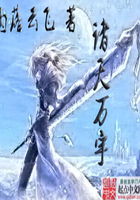Were the first words we heard among the islands.Canoe followed canoe till the ship swarmed with stalwart,six-foot men in every stage of undress;some in a shirt,some in a loin-cloth,one in a handkerchief imperfectly adjusted;some,and these the more considerable,tattooed from head to foot in awful patterns;some barbarous and knived;one,who sticks in my memory as something bestial,squatting on his hams in a canoe,sucking an orange and spitting it out again to alternate sides with ape-like vivacity -all talking,and we could not understand one word;all trying to trade with us who had no thought of trading,or offering us island curios at prices palpably absurd.There was no word of welcome;no show of civility;no hand extended save that of the chief and Mr.
Regler.As we still continued to refuse the proffered articles,complaint ran high and rude;and one,the jester of the party,railed upon our meanness amid jeering laughter.Amongst other angry pleasantries -'Here is a mighty fine ship,'said he,'to have no money on board!'I own I was inspired with sensible repugnance;even with alarm.The ship was manifestly in their power;we had women on board;I knew nothing of my guests beyond the fact that they were cannibals;the Directory (my only guide)was full of timid cautions;and as for the trader,whose presence might else have reassured me,were not whites in the Pacific the usual instigators and accomplices of native outrage?When he reads this confession,our kind friend,Mr.Regler,can afford to smile.
Later in the day,as I sat writing up my journal,the cabin was filled from end to end with Marquesans:three brown-skinned generations,squatted cross-legged upon the floor,and regarding me in silence with embarrassing eyes.The eyes of all Polynesians are large,luminous,and melting;they are like the eyes of animals and some Italians.A kind of despair came over me,to sit there helpless under all these staring orbs,and be thus blocked in a corner of my cabin by this speechless crowd:and a kind of rage to think they were beyond the reach of articulate communication,like furred animals,or folk born deaf,or the dwellers of some alien planet.
To cross the Channel is,for a boy of twelve,to change heavens;to cross the Atlantic,for a man of twenty-four,is hardly to modify his diet.But I was now escaped out of the shadow of the Roman empire,under whose toppling monuments we were all cradled,whose laws and letters are on every hand of us,constraining and preventing.I was now to see what men might be whose fathers had never studied Virgil,had never been conquered by Caesar,and never been ruled by the wisdom of Gaius or Papinian.By the same step Ihad journeyed forth out of that comfortable zone of kindred languages,where the curse of Babel is so easy to be remedied;and my new fellow-creatures sat before me dumb like images.Methought,in my travels,all human relation was to be excluded;and when Ireturned home (for in those days I still projected my return)Ishould have but dipped into a picture-book without a text.Nay,and I even questioned if my travels should be much prolonged;perhaps they were destined to a speedy end;perhaps my subsequent friend,Kauanui,whom I remarked there,sitting silent with the rest,for a man of some authority,might leap from his hams with an ear-splitting signal,the ship be carried at a rush,and the ship's company butchered for the table.
There could be nothing more natural than these apprehensions,nor anything more groundless.In my experience of the islands,I had never again so menacing a reception;were I to meet with such to-day,I should be more alarmed and tenfold more surprised.The majority of Polynesians are easy folk to get in touch with,frank,fond of notice,greedy of the least affection,like amiable,fawning dogs;and even with the Marquesans,so recently and so imperfectly redeemed from a blood-boltered barbarism,all were to become our intimates,and one,at least,was to mourn sincerely our departure.















